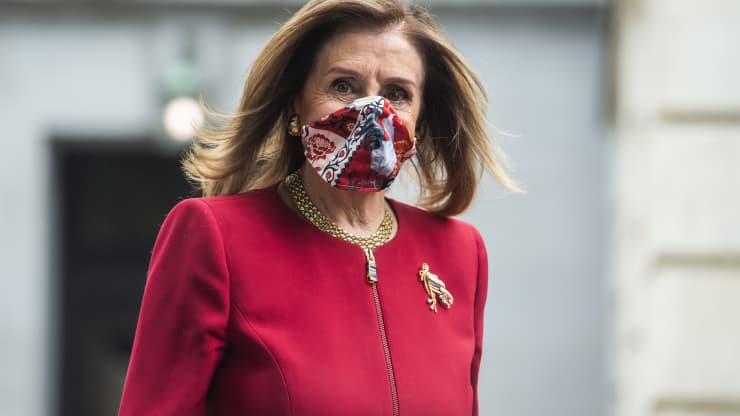The House voted Monday to increase the second round of federal direct payments to $2,000 as Democrats embrace President Donald Trump’s calls to put more money in Americans’ pockets. The measure would boost the stimulus checks in the year-end coronavirus relief and government funding package to $2,000 from $600. The vote came a day after Trump signed the more than $2 trillion pandemic aid and full-year government spending bill into law.

The House passed the payments in a fast-track procedure with just enough support to meet the two-thirds threshold needed. The chamber approved the measure in a 275-134 vote. Democrats backed the bill by a 231-2 margin. Forty-four GOP representatives supported the measure and 130 voted against it, after days of calls by the Republican Trump to increase the payments to $2,000.
A spokesman for Senate Majority Leader Mitch McConnell, R-Ky., did not immediately respond to a request to comment on whether the chamber would vote on the House-passed bill. In a Sunday statement cheering Trump’s decision to pass the year-end legislation, McConnell did not mention any plans to vote on larger payments. Senate Minority Leader Chuck Schumer, D-N.Y., said Monday that he would try to pass the legislation in the Senate on Tuesday.
When asked whether the $600 payments were still on course to go out starting this week as Treasury Secretary Steven Mnuchin previously said, a senior Treasury official said the department expects to make the payments on the same timeline he discussed. If Congress does approve the $2,000 checks, the department will then add to the already issued money.
In a statement explaining his decision to sign the legislation Sunday, Trump noted that the House and potentially the Senate could move to approve larger cash deposits. However, most Republicans in the GOP-held Senate have opposed even a $1,200 check.
Trump’s gambit caps a chaotic eight months of efforts in Washington to send another round of coronavirus relief. Americans waited months for more help after financial lifelines that aided them through the early months of the pandemic expired over the summer. Trump’s delays in signing the year-end bill may cost millions of jobless Americans a week of unemployment benefits after two key relief programs briefly expired.
The president’s signature prevented a government shutdown that would have started Tuesday. More delays also would have jeopardized a federal eviction moratorium, which the bill extends by a month through Jan. 31.
Democrats have called the relief bill a down payment and plan to push for more aid after President-elect Joe Biden takes office Jan. 20. As they had called for larger direct payments throughout aid talks, they jumped on the president’s support for $2,000 deposits.
House Democrats already tried to pass $2,000 payments by unanimous consent during a pro forma session on Thursday. However, the vote failed because House Minority Leader Kevin McCarthy, R-Calif., did not approve it.
The $900 billion pandemic aid portion of the legislation includes the $600 payments along with a $300 per week federal unemployment insurance supplement into mid-March. It extends programs that allow freelance, gig and self-employed workers to receive benefits and increase the number of weeks people can receive insurance.
The bill puts over $300 billion more into small business support, mostly in the form of forgivable Paycheck Protection Program loans. It creates a $25 billion rental assistance fund.
It includes more than $8 billion for Covid-19 vaccine distribution and $20 billion to make shots free to Americans. It also puts $82 billion into education as schools struggle to reopen, and $45 billion into transportation, which includes airline payroll support.
The relief package does not put money into state and local government relief, which Democrats and many Republicans support as a measure to prevent layoffs. However, GOP leaders have opposed approving the aid without also creating a shield for businesses from coronavirus-related lawsuits.
Democrats plan to push for state and local support and another round of direct payments, among other aid measures, after Biden takes office.
House passes bill for $2,000 stimulus checks – leaving it up to GOP-controlled Senate, CNBC, Dec 29